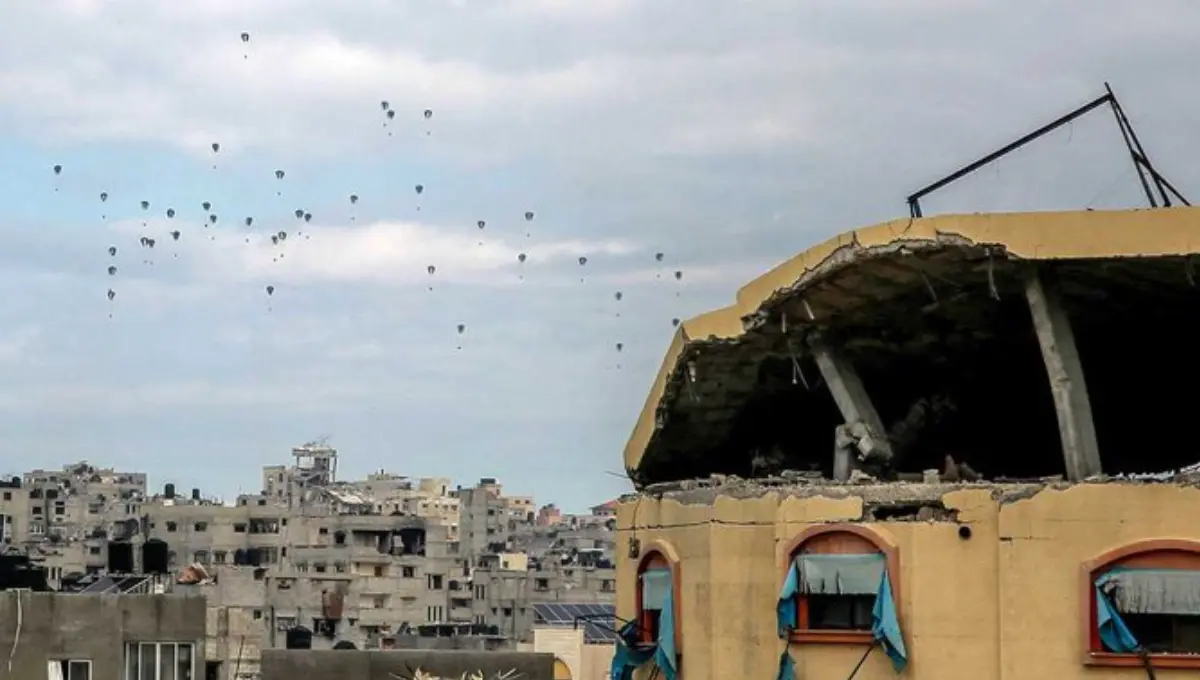In a statement, the Gaza government reiterated its earlier warning about the dangers posed by airdrops, emphasizing the threat to the lives of Gaza Strip residents.

A devastating accident unfolded in Gaza as a humanitarian airdrop parachute failed to open, resulting in at least five fatalities and numerous injuries. The parachute crashed onto a group of civilians gathered for food distribution near the Shati refugee camp in north Gaza City. The Gaza government’s media office criticized the failed airdrop, labeling it as ‘useless’ and emphasizing its focus on ‘flashy propaganda’ rather than genuine humanitarian aid.
In a statement, the Gaza government reiterated its prior warning about the dangers posed by airdrops, emphasizing the threat to the lives of Gaza Strip residents. The United Nations Office for the Coordination of Humanitarian Affairs reported that half a million people, equivalent to one in four individuals in Gaza, are facing the risk of famine. This tragedy highlights the difficulties in providing essential aid to Gaza, exacerbated by Israeli restrictions.
UNRWA, the primary UN organization in Gaza, reported that Israeli authorities have prohibited the transportation of supplies to the northern part of the strip since January 23. The World Food Programme also encountered challenges, as their first convoy to the north in two weeks was compelled to turn back on Tuesday due to military restrictions.
Despite airdrops conducted by nations such as Egypt, the United States, Jordan, and the United Arab Emirates, relief organizations criticize these efforts as costly and ineffective. The UN warns that the impending famine in Gaza seems ‘almost inevitable’ without immediate intervention.
Read also: France Ensures Abortion Rights, Inspires European Access Expansion
The shortage of food in Gaza is linked to military activities, insecurity, and substantial transportation obstacles. Health officials in Gaza reported over 30,000 deaths during the five-month conflict.
Amidst these challenges, the International Court of Justice (ICJ) is poised to conduct historic hearings on the legality of Israel’s 57-year occupation of Palestinian territories. Concurrent with Israel’s ongoing military offensive in Gaza, the ICJ proceedings center on the occupation of the West Bank, Gaza, and East Jerusalem since 1967.


